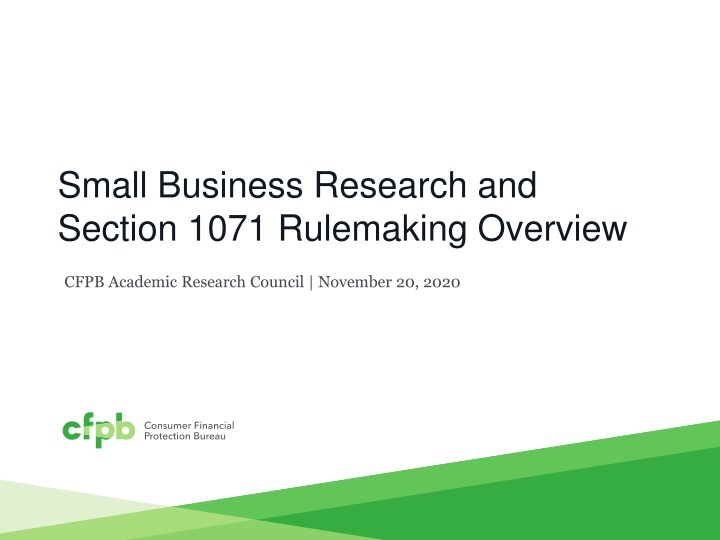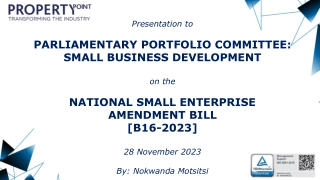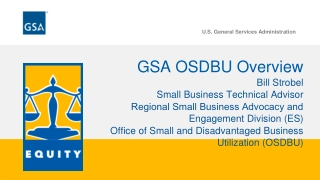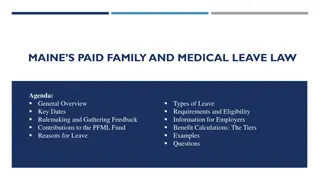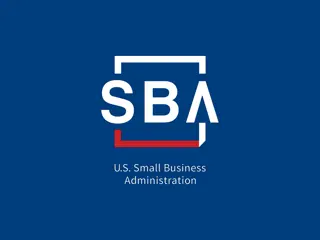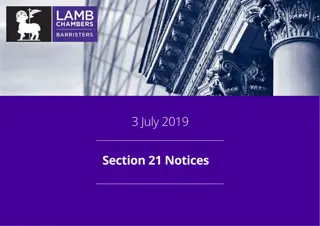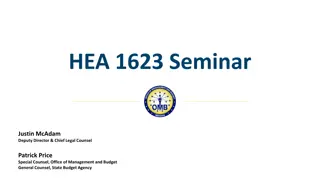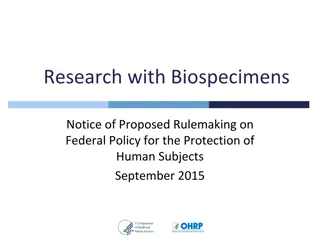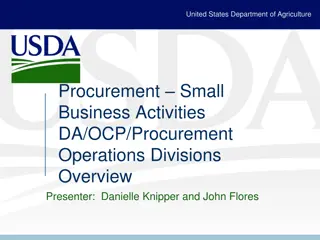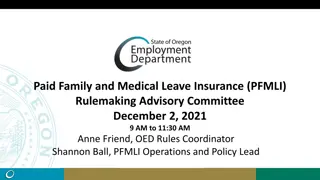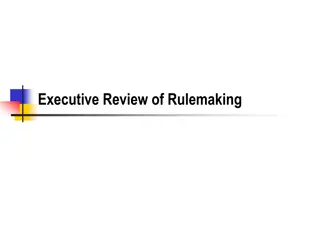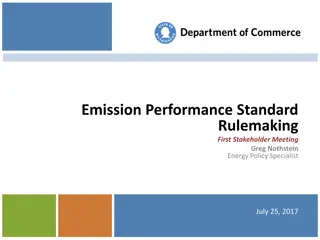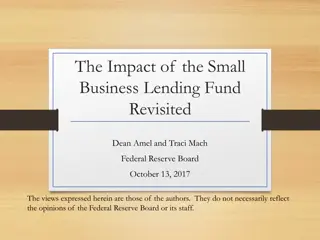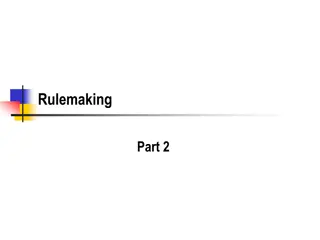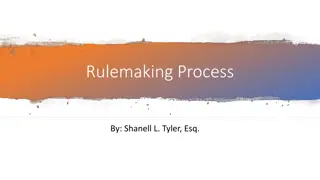Small Business Research and Section 1071 Rulemaking Overview
Section 1071 of the Dodd-Frank Act requires financial institutions to collect data on credit applications for women-owned, minority-owned, and small businesses. This data aims to enforce fair lending laws and identify development needs. The current status includes progress in understanding the small business lending market, with future steps including the completion of the SBREFA panel report in December 2020 and anticipated rulemaking notices.
Download Presentation

Please find below an Image/Link to download the presentation.
The content on the website is provided AS IS for your information and personal use only. It may not be sold, licensed, or shared on other websites without obtaining consent from the author.If you encounter any issues during the download, it is possible that the publisher has removed the file from their server.
You are allowed to download the files provided on this website for personal or commercial use, subject to the condition that they are used lawfully. All files are the property of their respective owners.
The content on the website is provided AS IS for your information and personal use only. It may not be sold, licensed, or shared on other websites without obtaining consent from the author.
E N D
Presentation Transcript
Small Business Research and Section 1071 Rulemaking Overview CFPB Academic Research Council | November 20, 2020
Small business overview 30.2 million employer and non-businesses (99.9% of businesses) Financing Marketplace Term Loans and Lines of Credit* 36% SBA Loans (7(a), 504, and microloans) 7% 24.3 million are non- employer firms Merchant Cash Advance <1% 5.9 million are employer firms; of which 5.3 million have 1 20 employees Business Credit Cards 16% Factoring 7% Equipment Leasing 13% Supplier Financing 21% 8.0 million are minority- owned businesses; 11 million are women-owned A $1.4 trillion market Source: CFPB, Key dimensions of the small business lending landscape (May 2017)
Section 1071general background Section 1071 of the Dodd-Frank Act amended the Equal Credit Opportunity Act (ECOA) to require financial institutions to compile, report, and maintain data regarding applications for credit for women-owned, minority-owned, and small businesses. Its statutory purposes are to: [F]acilitate enforcement of fair lending laws and [E]nable communities, governmental entities, and creditors to identify business and community development needs and opportunities of women- owned, minority-owned, and small businesses Would constitute the first systematic collection of small business lending application data Similar to HMDA, but small business lending is more varied in both products and underwriting approaches 3
Statutory data points Action taken by the institution and date of such action Application number and date received Type and purpose of the loan or credit Gross annual revenue in last fiscal year Race, sex and ethnicity of the principal owners Principal place of business (census tract) Amount of credit or credit limit applied for Amount of credit transaction or credit limit approved Also provides for any additional data elements that the Bureau determines would aid in fulfilling the purposes of [section 1071]. 4
Current status Progress in understanding small business lending market: White Paper: Key Dimensions of the Small Business Lending Landscape May 2017 Request for Information May 2017 Symposium on section 1071 Nov. 2019 Data point: Small Business Lending and the Great Recession Jan. 2020 One-time implementation cost survey response period ended Oct. 16, 2020 SBREFA outline released Sept. 15, 2020 SBREFA panel convened Oct. 15, 2020 and meetings with small entity representatives complete Next steps in the section 1071 rulemaking: SBREFA panel report to be completed in Dec. 2020 Notice of proposed rulemaking TBD Final rule TBD 5
Existing research questions about small businesses In 2013, an interagency meeting identified multiple outstanding research questions about small businesses Example research questions: What are the sources of credit for small businesses and startups? What is the quality of credit for small businesses and startups? How do government programs affect access to credit? How do business owner characteristics affect access to capital (in particular women- and minority-owned businesses)? 6
CFPB possible research: Interaction between consumer and business credit Use of personal credit for business purposes is prevalent among small businesses 86% of employer firms use personal credit scores when applying for business credit (Small Business Credit Survey, NY Fed) Many firms use consumer credit cards, HELOCs, or personal loans to finance business activities Possibly necessary because of limited business credit history, but does intricately tie business performance to personal credit history OR is considering research to explore the interrelationship of personal and business credit 7
Using CFPB data assets Several existing CFPB data assets could be used to address the question Consumer Credit Panel Observe personal credit inquiries related to business loan applications How many consumers apply for business products using their personal credit information? How do the credit profiles of non-business owners differ from business owners? Credit Card Database: could investigate the spending behavior of business credit card accounts versus consumer credit cards 8
Additional discussion topics 1. The benefits of section 1071 data on women-owned, minority-owned, and small businesses for research 2. Using Bureau data assets to understand the effect of the COVID-19 pandemic on small business lending and small business credit availability 9
